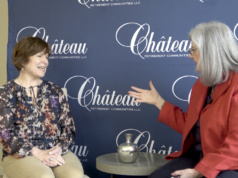Andrea Lee from Legacy Estate Planning joins Suzanne to talk about issues individuals and families face in regards to incapacity. Incapacity planning is a broad area of law that covers how you are cared for if you become physically or mentally unable to care for yourself. The type of care could range from simple tasks like buying groceries, paying bills, and handling financial matters to more important decisions such as selling real estate, gifting assets to your children, or making critical medical decisions. Incapacity planning could include a number of techniques such as Property Powers of Attorney, Health Care Powers of Attorney, Living Wills or Advance Health Care Directives or Guardianships/Conservatorships. It is also important to have appropriate HIPAA authorization forms in place.
Andrea says, “I’ve been practicing elder law and estate planning for 19 years now. And it is not unusual for me to have someone walk into my office. They’re 86 years old. They don’t see well, they don’t hear well, they’re using a walker. They’re afraid of using the stove and maybe their kids have said something to them along the lines of, well, maybe it’s time to get help. And they’re like, oh, I don’t need it yet, because they don’t see themselves the way that other people see them. I mean, in my heart, I still feel like I’m 25. I’m not, I have a child in their twenties, but that’s how I feel. And that’s how even 85-year-olds feel. They still see themselves frequently as much younger and more capable. So it’s so much harder for people oftentimes to get the help they need, because they can’t accurately see themselves.”
When is the best time to plan? Andrea advises, “The best time to plan or anticipate incapacity is long before anyone even gets close to that. My own mom has dementia, and for the very first five years, she was pretty competent and she would never acknowledge she was the one that had a problem. She could never acknowledge that. Hopefully you start when you’re in your forties, and then you revisit when you’re 50. But the very first thing we need to make sure someone has are those power of attorney documents. And that’s because without those basic power of attorney documents, as an attorney it’s extremely difficult for us to assist a family who’s dealing with navigating the challenges someone might face as they age.
“The number one goal obviously is to have those legal documents in place. Because once we have them in place, we can almost always overcome some of the other challenges. Maybe not knowing where things might be kept, not having a copy of the deed, not accessing accounts, we can almost always overcome them. It’s hard, but we can do it, as long as those legal documents are in place.
“Now, for our clients, when they retain us to prepare a comprehensive estate plan, we give them an organizational binder. And in that binder we give them a list of documents that their agents might want in the future, and we give them places to store information. So that if you become incapacitated, if something happens to an individual and their children are able to find that binder, they’ve made it easier for those children. So it’s all there together in a nice binder and the kids don’t need to spend hours searching through the house to try to find their social security card or something along those lines.”
Mention you heard the show on Answers for Elders to get a free consultation.
- Andrea Lee
- Incapacity planning overview at Legacy Estate Planning
- Incapacity planning articles at Legacy Estate Planning
- More podcasts with Andrea Lee
- More podcasts about Power of Attorney
- Check out our affiliate podcast Alzheimer’s Speaks













